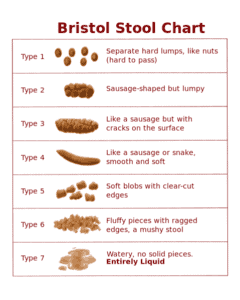Understanding How Dehydration Affects the Body
Your body needs both water and electrolytes to function properly. Intracellular hydration relies on these charged minerals, such as sodium, chloride, potassium, and magnesium, to regulate the flow of water across cell membranes.
- Potassium (an intracellular electrolyte) and sodium (an extracellular electrolyte) work together to maintain the osmotic balance of fluid in the body.
- Magnesium is crucial for the optimal cellular uptake of potassium, playing a critical role in cellular hydration.
Water Intake Factors
How much water a person needs varies based on several factors, including:
- Caffeine intake
- Diet
- Medications
- Physical activity
- Temperature and humidity
- Metabolic rate
- Body weight
Dehydration can result from more than just not drinking enough water. Water and electrolyte loss occurs through bodily fluids such as:
- Loose stool/diarrhea
- Vomit
- Sweat
- Urine
Certain medications and illnesses can increase fluid and electrolyte loss, leading to dehydration. For example:
- Diuretics increase urination.
- High blood sugar increases the demand on kidney filtration.
The Stress Factor
Stress itself can impair water retention, as suboptimal cortisol levels (both high and low) disrupt the balance of sodium, chloride, and potassium. Dehydration, in turn, exacerbates stress.
Key Tips for Hydration
It’s essential to remind clients and patients to rehydrate with plain, clean water from a non-toxic container between meals. This ensures that their digestive secretions are not diluted when needed most.
Dehydration begins to impact bodily functions even before thirst signals are triggered. Here are some ways dehydration may contribute to health challenges and disease:
How Dehydration Affects the Body
- Brain fog and headaches – About 75% of the brain is composed of water, which brings nutrients to the brain and removes toxins. Prolonged dehydration may cause brain cells to shrink in size and mass, as well as decrease their metabolic activity.
- Joint pain and arthritis – Water is a major component of cartilage and synovial fluid in joints (e.g. hips, knees, feet, shoulders, and hands), and it provides the joint with lubrication, nutrition, and shock absorption. Decreased circulation also allows immune complexes and waste to build up in joints causing oxidative stress and inflammation, which may eventually lead to oxidative damage and pain in these areas.
- Lab markers that represent a concentration may be high – Lab markers that are measured via their relative concentration to blood volume will be higher when blood volume is low (e.g. Albumin, BUN, RBC, Hemoglobin). Since dehydration lowers blood volume, and thus increases the concentration of substances in the blood, an elevation in these markers May be a sign of dehydration.
- Kidney dysfunction – Insufficient water in the blood inhibits the filtration of toxins by the kidneys, and leads to a higher concentration of minerals, which may harden into crystals and promote kidney stones, and may eventually precipitate into kidney disease.
- Gout – An increased concentration of uric acid in the blood may precipitate into urate crystals that can get trapped in areas of low circulation, such as joints.
- Urinary Tract Infections – An increased concentration of toxins and infrequent voiding may allow bacteria to grow in the urinary tract.
- Bad breath – Saliva has antibacterial properties, and a dry mouth may allow bacteria to overgrow in the mouth.
- Nausea, dizziness, blurred vision – Low blood volume decreases blood pressure, and thus inhibits blood supply to organs and the brain. Decreased blood flow also increases heart rate and can contribute to anxiety.
- Hypertension – Low blood pressure and a higher sodium concentration increases secretion of the hormone vasopressin, causing vasoconstriction and reabsorption of water by the kidneys, both of which increase blood pressure and puts strain on the heart.
- Muscle cramps/spasms and fatigue – Insufficient electrolytes affects muscle contraction (including the heart), nerve transmission, and intracellular hydration. Decreased blood volume inhibits delivery of nutrients, oxygen and fluid to cells.
- Dry skin and wrinkles – Water is essential for maintaining cell structure and collagen fibers.
- Snoring – Dry nasal passages thicken mucus and may lead to congestion and interrupted sleep.
- Decreased metabolism – Water is essential to maintain the conformation and flexibility of enzymes for catalyzing biochemical reactions.
- Allergies and asthma – Histamine levels may increase to conserve intracellular hydration.
- Inflammation – A build-up of toxins and cellular metabolic waste may create localized and systemic inflammation.
- Constipation – Water softens the stool and prevents slow transit time so that bowel movements are easier to pass.
- Toxicity – Constipation and decreased urination may allow toxins to reabsorb back into circulation rather than being excreted from the body.
- Mood disorders – Mood disorders can also be secondary to many dehydration mediated diseases. Dehydration may also dramatically reduce neurotransmitter synthesis and activity.







